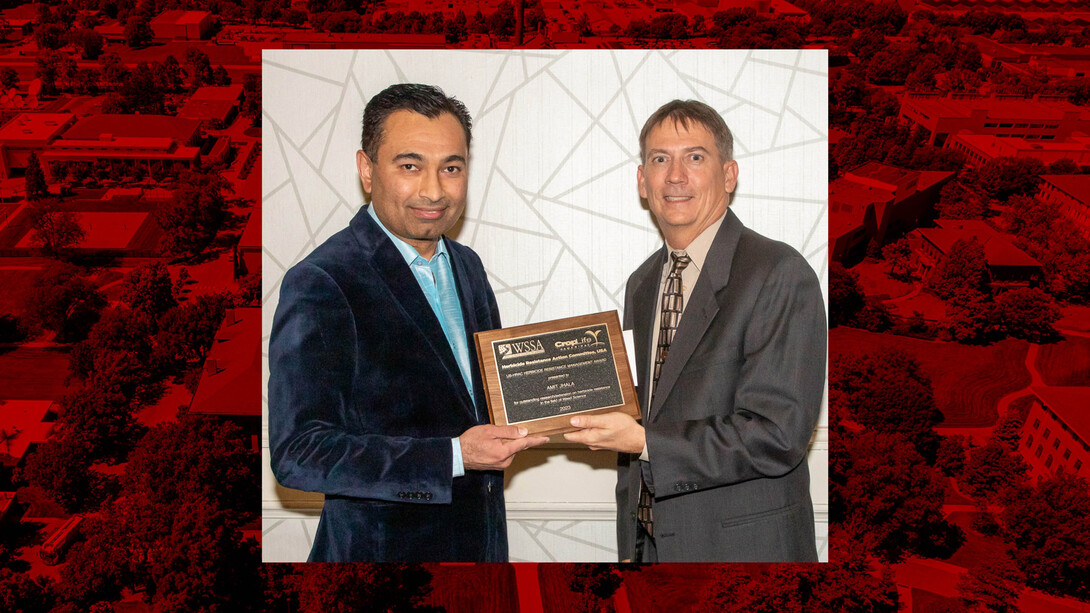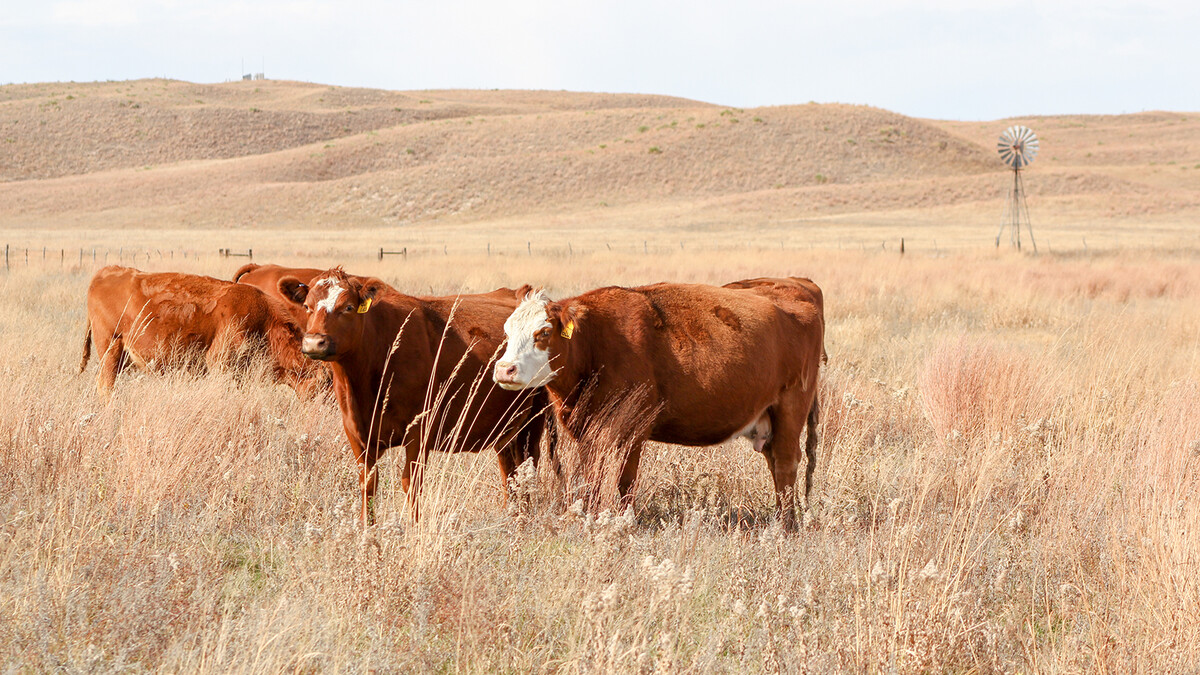
Lincoln, Neb. —Amit Jhala was honored with the Herbicide-Resistant Weed Management Award by Weed Science Society of America’s United States Herbicide Resistance Action Committee during the joint WSSA and Northeastern Weed Science Society annual meeting in Arlington, Virginia, Jan. 30. Jhala is an associate professor, associate department head and Nebraska Extension weed management specialist in the Department of Agronomy and Horticulture at the University of Nebraska–Lincoln.
This award recognizes a WSSA member for outstanding contributions to both applied and basic weed science research on management of herbicide-resistant weeds. Jhala has overwhelmingly demonstrated leadership in the development and implementation of effective herbicide-resistant weed management research and extension. His work has had a significant impact on the scientific understanding and/or addressing herbicide resistance issues and promoting best management practices for growers for safe and effective management of herbicide-resistant weeds.
“Amit is an innovator, hard worker, first to help a colleague, outstanding mentor, excellent collaborator, and an outstanding researcher and extension specialist,” said Anil Shrestha, chair and professor at Fresno State in the Department of Viticulture and Enology, Jordan College of Agricultural Sciences and Technology.
Jhala completed his bachelor’s degree in agriculture from Gujarat Agricultural University in 2002 and his master’s in weed science from Anand Agricultural University in 2003. In 2009, he completed his doctoral degree in plant science and weed science from the University of Alberta.
Jhala began his career in research and extension at the University of California, Davis and the University of Florida working on vegetables, fruit crops and citrus orchards.
In 2012, Jhala came to Nebraska as an assistant professor and extension weed management specialist with a 50% research and 50% extension appointment. In 2018 he was promoted to associate professor.
He is known world-wide for his research on pollen-mediated gene flow from herbicide resistant crops and weeds. His research focuses on the biology, pollen-mediated gene flow and management of herbicide-resistant weeds.
“Amit has developed an outstanding weed science research and extension program. He successfully translates research projects into extension programs with demonstrations to clientele at field days and develops articles, videos and publications that are timely, pertinent and address real world problems faced by growers in Nebraska and other states,” said Robert (Bob) Klein, emeritus professor and Nebraska Extension crops specialist at West Central Research, Extension and Education Center in North Platte.
In the last 10 years, Jhala’s team has conducted several research projects and proved that pollen-mediated gene flow is playing an important role in disseminating herbicide resistant alleles in several weed species. This research is extremely important as six broadleaf weeds including common ragweed, giant ragweed, marestail, kochia, Palmer amaranth, and waterhemp have evolved resistance to glyphosate − the most commonly used herbicide in Nebraska corn and soybean production.
Jhala is also committed to mentoring students, graduating eight master’s and four doctoral students so far.
“He stands as an important source and guiding light for young researchers in the field as an exemplar of what a weed scientist can be in research and extension. His students are successful in academia, industry, and government jobs that speaks about his ability for mentoring and training new generation of weed scientists,” Shrestha said.
Jhala has published several papers in high impact journals such as Nature Scientific Reports, The Plant Journal, Crop Science, Heredity, Weed Science about pollen-mediated gene flow from herbicide-resistant giant ragweed, waterhemp and Palmer amaranth. Publication credits include 12 book chapters and 141 papers published in peer-reviewed journals.
Jhala’s weed science extension program reaches several thousand clientele in Nebraska each year and beyond to solve weed-related problems in corn, soybean, sorghum and popcorn. His team demonstrates trials of new herbicides, multiple herbicide-resistant crops and how to manage herbicide-resistant weeds. These events, attended by growers, crop consultants, industry representatives and Nebraska’s commodity board members, provide unbiased information about weed control.
Jhala has served on numerous North Central Weed Science Society and WSSA committees and currently serves as NCWSS secretary-treasurer, NCWSS and WSSA student paper/poster contest judge, associate editor of Weed Technology and a member of WSSA Website Committee.
He has received numerous awards including WSSA Outstanding Early Career Weed Scientist Award, WSSA Outstanding Reviewer Award, North Central Weed Science Society Distinguished Achievement Outstanding Young Weed Scientist Award, American Society of Agricultural and Biological Engineers Superior Paper Award, Canadian Journal of Plant Science Outstanding Associate Editor Award, Gamma Sigma Delta Award of Merit in Extension, Nebraska Cooperative Extension Association Award of Excellence in Individual Extension Program, and Epsilon Sigma Phi Outstanding Early Career Extension Leadership Award.
“I have worked with several faculty in my career. Among them, I would consider Amit in the top 1% in terms of outstanding performance, productivity, impact, and contribution in weed science research and extension,” Shrestha said.
The United States Herbicide Resistance Action Committee (US-HRAC) is an industry group operated by technical members of the companies represented in CropLife America. The committee works closely with global herbicide resistance action committee, Weed Science Societies, commodity groups, and stakeholders in agricultural associations.
The Weed Science Society of America is a non-profit professional society that promotes research, education and extension outreach activities related to weeds and provides science-based information to the public and policy makers.
More information about Jhala's research and extension work is at https://agronomy.unl.edu/jhalalab.







